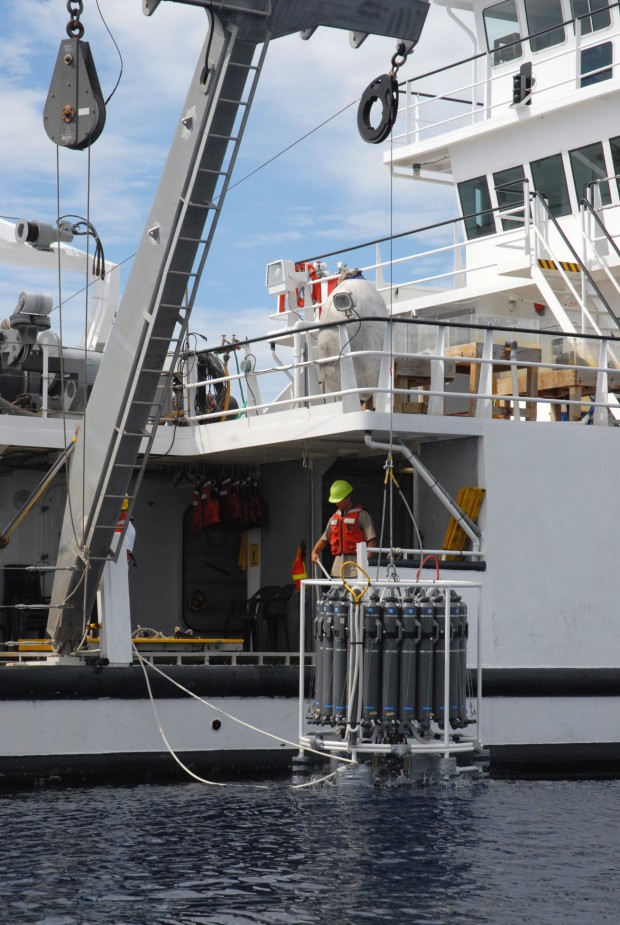BIOS Research: Impacts Of Ocean Acidification
The build up of carbon dioxide [CO2] in the atmosphere contributes not only to climate change but also to changes in the ocean as the global ocean eventually absorbs nearly 30% of the planet’s atmospheric CO2, researchers at BIOS said.
Over time, this results in significant changes to seawater chemistry—such as a reduction in pH—that can potentially impact marine ecosystems.
These changes in seawater chemistry due to the absorption of carbon dioxide are collectively known as ocean acidification. In addition to pollution and global warming, this represents another global threat to the ocean’s fragile ecosystems.
Conductivity, Temperature, and Depth deployment on the R/V Atlantic Explorer. Photo by Tiffany Wardman:
Dr. Nicholas Bates, Senior Scientist and Interim Director at the Bermuda Institute of Ocean Sciences [BIOS], says that “assessing the present and future impact of ocean acidification on marine ecosystems requires detection of long-term change across ocean basins and at ocean time-series sites.”
In a recent paper published in the journal Biogeosciences, a team of researchers from BIOS and Scripps Institution of Oceanography used data from the Bermuda Atlantic Time-series Study [BATS, located 44nm SE of Bermuda] and Hydrostation S [located 15nm SE of Bermuda] to demonstrate the impacts of ocean acidification.
The research team, led by Dr. Bates, compiled more than four decades of ocean observations to create the longest running time-series of seawater chemistry from anywhere in the global ocean.
Dr. Bates noted that “such records provide critically needed data showing that such changes in ocean chemistry are due to the release of human produced CO2 and it’s absorption by the global ocean.”
This data is also needed to assess the response of marine organisms and ecosystems to ocean acidification. Ocean observations off Bermuda provide governments and organizations, such as the United Nations Intergovernmental Panel for Climate Change [IPCC], the information needed to plan for and effectively address this global environmental issue.
Read More About
Category: All, Environment


